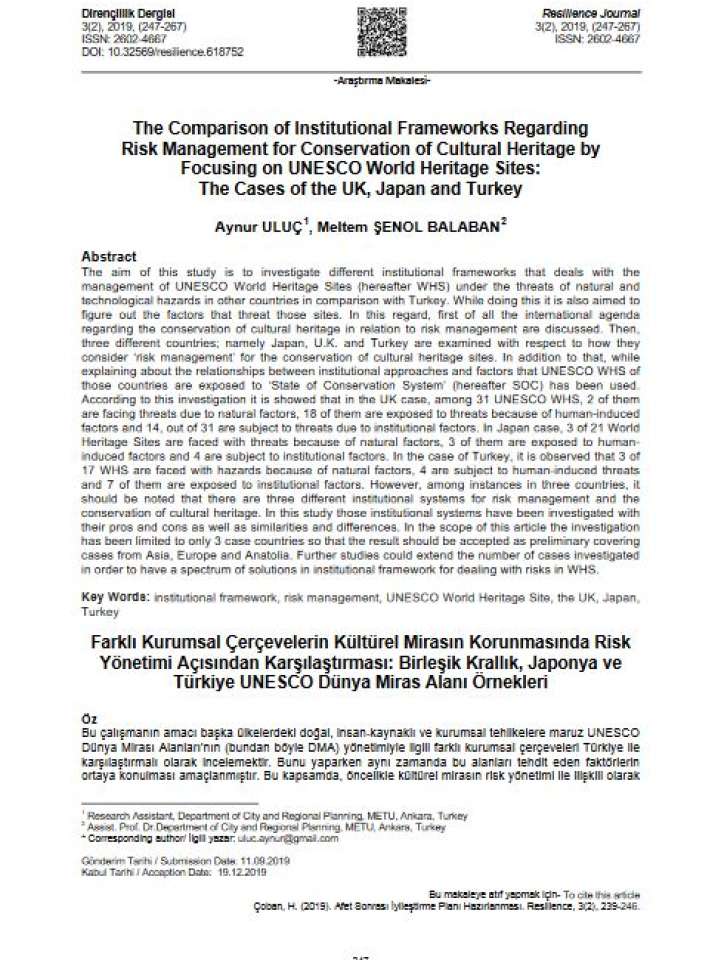The comparison of institutional frameworks regarding risk management for conservation of cultural heritage by focusing on UNESCO World Heritage Sites: The cases of the UK, Japan and Turkey
The aim of this study is to investigate different institutional frameworks that deal with the management of UNESCO World Heritage Sites (hereafter WHS) under the threats of natural and technological hazards in other countries in comparison with Turkey. While doing this it is also aimed to figure out the factors that threaten those sites. In this regard, first of all, the international agenda regarding the conservation of cultural heritage in relation to risk management are discussed. Then, three different countries; namely Japan, U.K. and Turkey are examined with respect to how they consider ‘risk management’ for the conservation of cultural heritage sites. In addition to that, while explaining the relationships between institutional approaches and factors that UNESCO WHS of those countries are exposed to ‘State of Conservation System’ (hereafter SOC) has been used. According to this investigation, it is shown that in the UK case, among 31 UNESCO WHS, 2 of them are facing threats due to natural factors, 18 of them are exposed to threats because of human-induced factors and 14, out of 31 are subject to threats due to institutional factors.
In Japan case, 3 of 21 World Heritage Sites are faced with threats because of natural factors, 3 of them are exposed to human-induced factors and 4 are subject to institutional factors. In the case of Turkey, it is observed that 3 of 17 WHS are faced with hazards because of natural factors, 4 are subject to human-induced threats and 7 of them are exposed to institutional factors. However, among instances in three countries, it should be noted that there are three different institutional systems for risk management and the conservation of cultural heritage. In this study, those institutional systems have been investigated with their pros and cons as well as similarities and differences. In the scope of this article the investigation has been limited to only 3 case countries so that the result should be accepted as preliminary covering cases from Asia, Europe and Anatolia. Further studies could extend the number of cases investigated in order to have a spectrum of solutions in institutional framework for dealing with risks in WHS.
Explore further
